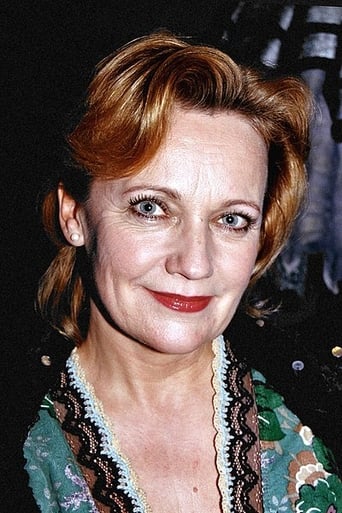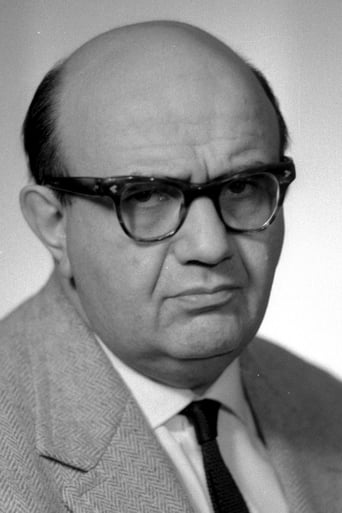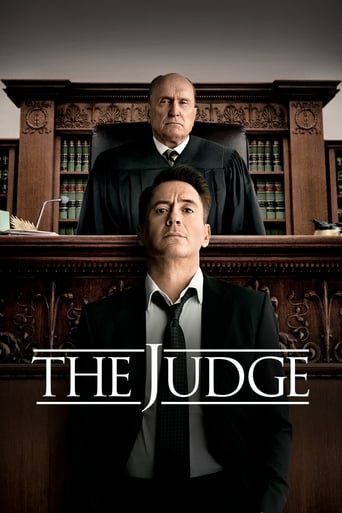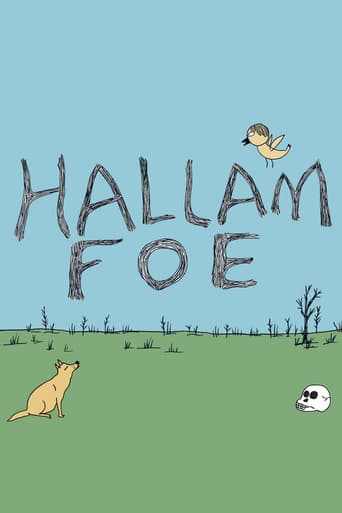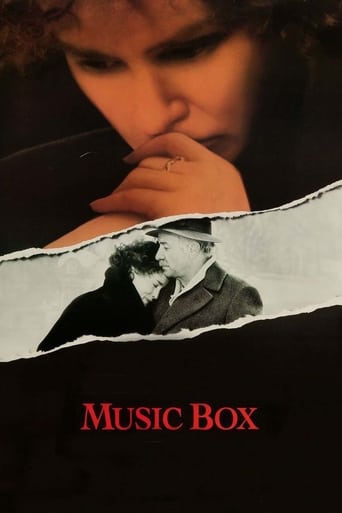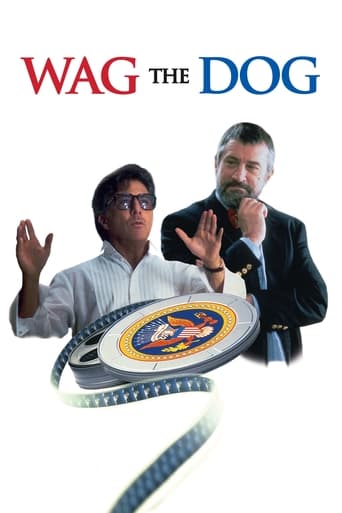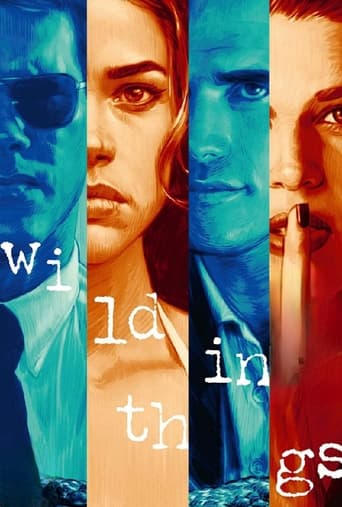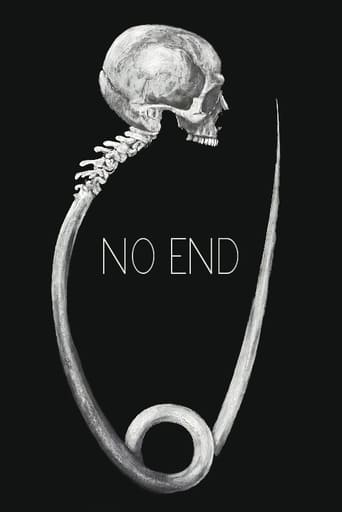

No End (1987)
1982, Poland. A translator loses her husband and becomes a victim of her own sorrow. She looks to sex, to her son, to law, and to hypnotism when she has nothing else in this time of martial law when Solidarity was banned.
Watch Trailer
Cast


Similar titles
Reviews
Wow! Such a good movie.
Wonderful character development!
There is, somehow, an interesting story here, as well as some good acting. There are also some good scenes
It’s sentimental, ridiculously long and only occasionally funny
What has been seen of Krzysztof Kieslowski (almost all his films and 'Dekalog' in its entirety) all ranges between very good (the 8th episode of 'Dekalog') to masterpiece ('Three Colors: Red' and 'Blue' and the whole 'Dekalog' series). To me, he was an immensely gifted director, who died far too early.'No End' is not one of Kieslowski's best, but like 'Camera Buff' it is another early film of his that deserves more love and attention. It may be alienating and strange to some viewers (its, as reasoned, pro-solidarity sentiments must have been reason enough for it to not be released internationally for over a year) and his more international work is somewhat more accessible. However, while some of the political story could have had more clarity in places, 'No End' is great in many ways with all the typical Kieslowski strengths that make his films so good.As was always the case in Kieslowski's work, 'No End' is made exceptionally. As well as being beautifully shot with atmospheric use of colour to match the mood, it is gritty yet beautiful with many thoughtful and emotionally powerful images and little things lingering long into the memory. Kieslowski's direction is quietly unobtrusive, intelligently paced and never too heavy. The music is suitably intricate.It's a thought-provoking film in writing, as ever thematically rich and with complex characters, and resists the trap of rambling. The 3-part story is intriguingly told, and while the political story could have done with more clarity the emotional story is harrowing and affecting and the metaphysical story fascinating. 'No End' is always engaging and suitably challenging. The acting is as always from Kieslowski marvellously nuanced and natural, especially from heart-wrenching Grazyna Szapolowska.Summing up, not among the best work of Kieslowski but deserves more love as a result of being overshadowed by his later stuff from 'Dekalog' onward. 9/10 Bethany Cox
Mesmerising, if only for the performance by Grazyna Szapolowska as the widow who moves through the film and ignites every scene. Beautiful and tragic at once she emanates power over the audience and one cannot turn away. I had not realised how much this film must have influenced some established mainstream films that we assume to be original. Obviously many of them owe a great debt to this story. Told unflinchingly by Kieslowski in a unshowy manner it still demonstrates moments of brilliant insights into the human condition. The pain and torture we must endure after such heartache runs through the the heart of this film. I particularly liked the little moments as always, such as the glass slipping through her fingers, the dog trying to get in the car, the dirt on her hands from the bumper whilst witnessing the accident, the hypnotherapy session where she sees him. All simple and yet so elegant. No hammering it through to the audience with big signposting saying 'Remember this for later!'. Why don't more films treat the audience with a tiny bit more intelligence or is the majority of film going to assume we are all thick. And just because a film is mainstream doesn't mean it has to be low brow. Godfather, Deer Hunter, French Connection? Very strong films? If you see this also see Amator.
This is a real pleasure to both eye and mind. The untimely demised Mr. Kislowski was a true genius of Polish cinema and with this excellent film he again proves it. The film is divided into two genres, if it may be said so - one is a mystic one, where we see the ghost of a dead Warsawa lawyer, Antek, when he watches his widow and his little son and their life from the ether and the only creature that sees him is a big black dog. The other plot is a deeply tragic and serious story about 1982's Poland, when the anti-Communist political movement called Solidarnosc (the Solidarity) was banned, the country suffered curfews, arrests and political trials.The widow of Antek, Ulla, is a famous translator, and she is devastated with her husband's death. She starts to help the wife of a man who is in prison, who was in Solidarnosc's actions and who was Antek's client. So, now that Antek is dead, another lawyer, his teacher, an elderly man takes the case, and his young assistant also helps him. The story tells us about the small and still tragic events of their lives. We see the unbent Solidarnosc activists, who meet secretly in their shabby apartments. We see Ulla's soul struggle when she is rushing from one extreme to another, having a quick date with an American, having help from the Solidarity people, having troubled relations with Antek's friend. We see and feel her pain, her mute suffering and her constant plea for her late husband. Finally, when the case is won, and that young man is released right during the trial, Ulla decides to take her life and finally join Antek. The cast is superb, we see young Marek Kondrat among others, we see other great actors and we feel the same pain they all suffer in those bleak, cold, merciless days of repressions and purges. A serious, earnest film for all who think.
the movie seems to state it's "thing" directly at least twice: when urszula reads antek's notes to labrador, and in the poem read aloud by labrador near the end. for the longest time i couldn't find subtitles for it but my reason for wanting to see it so much i watched the first time without them was no, not b/c i liked "Blue", but b/c jerzy radziwilowicz is foxy. this was a good thing though, seeing it once without much grasp of the dialogue and once with nearly all of it available in translation made the way the dialogue turned so many of the scenes on their head stand out a lot, so i don't know how much the effect would have stood out seeing it all at once. the second time seeing it being much easier also, and made so many small things that happen in the movie turn up, including a couple of details i'm sure i would have understood if i simply had a regular amount of the context i think the movie's audience would be assumed to have. as a whole it felt a little like i'd been walking neck-deep in an immense but somewhat deceptively smooth river. when the movie was over it felt like it had been physically heavy, leaving one a little wobbly. but this is how it can feel when you become stretched between things going on and relationships. popular wisdom (over here anyway) tries to say one is more Real, and the other steals from this, but as much as this is true in some sense it is also from a perspective of either luxury or detachment. when labrador is hoping to coach darek's wife in getting her husband to break the hunger strike, he asks her, do you want him free? her answer seems to convey that stretch, "he'd kill me" (figuratively) isn't just about how he'd respond to her betraying this thing he's fighting for, it's not as simple as he's neglecting his family for this thing. everyone lives in that thing, labrador's assistant conveys another facet of it, which you can immediately see is selfish when he talks to darek, but so what? the hypnotherapist seems to point to other dimensions of the emotional toll of this paradox, and at the same time the sessions almost seem to concentrate a feeling spread throughout the movie. something about the vulnerability of the living characters in the setting of the movie, there's almost a feeling like everyone's sleepwalking but the dead. i'm guessing that is how someone like myself, who can only guess, picks up the movie's expression of the feeling of the systematic oppression in the setting of the movie. no end?



